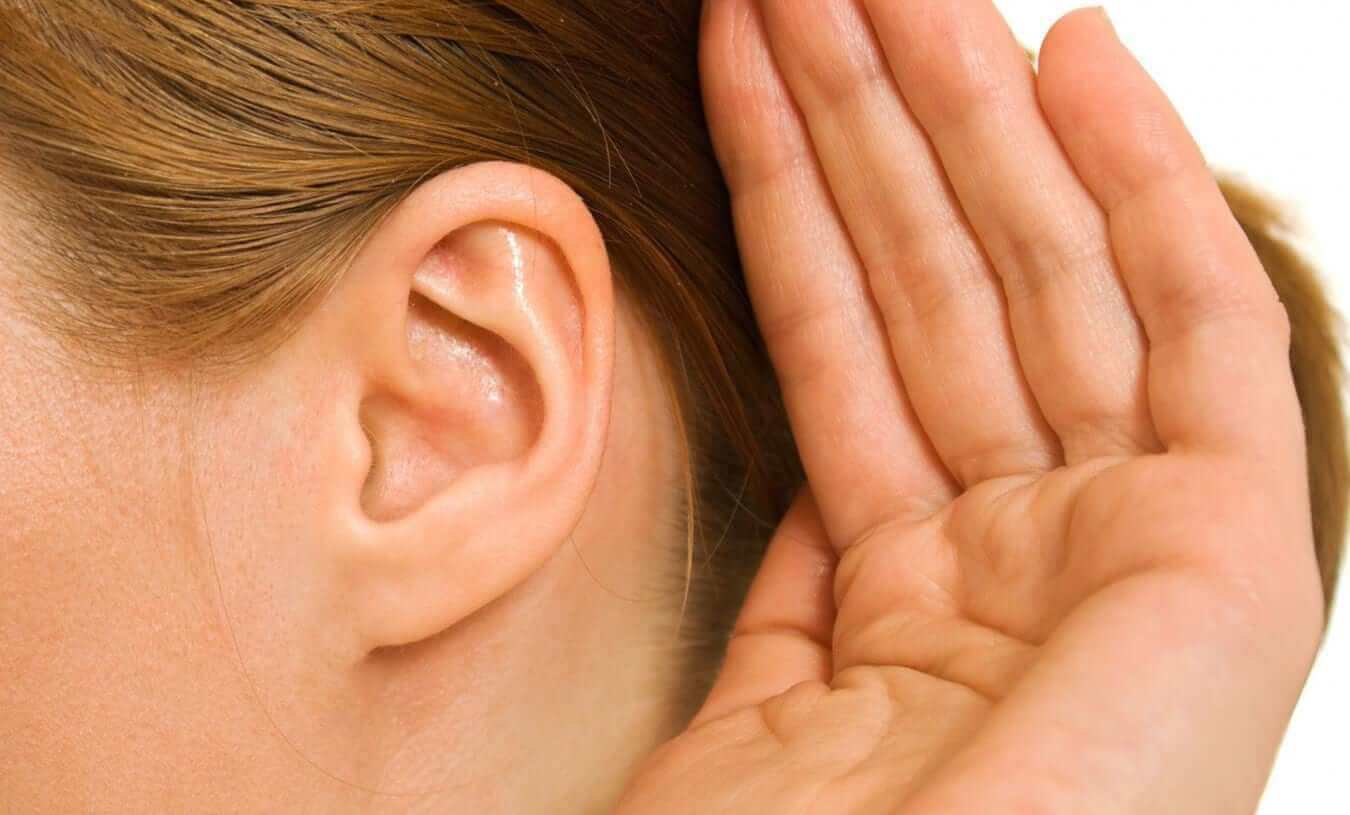There are three main types of hearing loss: conductive, sensorineural, and mixed. Conductive hearing loss results from an issue in the ear canal, eardrum, or middle ear. Sensorineural hearing loss is typically caused by damage to the hair cells of the inner ear, but it can also result from auditory nerve damage. Finally, as you might have guessed, mixed hearing loss is a combination of conductive and sensorineural issues.
Hearing loss can worsen gradually or occur very suddenly. Sometimes it affects both ears, and sometimes it only targets one. Whatever the details may be, be sure to consult an audiologist as soon as you notice symptoms of hearing loss.

Causes of Hearing Loss
In order for your audiologist (or, in cases where surgery is necessary, your otolaryngologist (ENT)) to administer an effective treatment regimen, they will first need to understand why you are currently experiencing hearing issues. Because there may be multiple reasons why you are having difficulty hearing, you will want to be sure to visit a hearing center or medical clinic that offers very personalized treatment options.
The Johns Hopkins Cochlear Center for Hearing and Public Health estimates that about 38.2 million American adults (about 14.3 percent or 1 in 7) experience medically diagnosable hearing loss. For individuals between the ages of 65 and 74, this figure rises from 1 in 7 to about 1 in 3. In addition to being especially prominent among older individuals, hearing loss is also statistically more likely to affect men than it is to affect women. People whose occupations or lifestyles involve consistent and regular exposure to loud noises are especially at risk of experiencing hearing loss.
Upon your first visit to an audiologist or general hearing center, you will likely undergo a series of hearing tests designed to recognize the tones, volumes, pitches, and other varieties of sounds you are currently capable of hearing. While not all types of hearing loss can be immediately corrected, the first step to receiving the relief you need is recognizing the underlying causes.
Genetics
Hearing loss can be hereditary, passed down through generations of a family. Some forms appear at birth, while others aren’t apparent until later in life. For example, otosclerosis, which causes the bone in the ear to overgrow and impede hearing, is thought to be a hereditary disorder.
Estimates indicate that anywhere between 35 and 55 percent of age-related hearing loss can be attributed to genetics. This means that if your parents or other older relatives have exhibited signs of excessive age-related hearing loss, you are statistically more likely to experience it yourself
Loud Noise
As you might assume, loud noises can cause lasting damage to your ears and to your ability to hear. At some point in your life, someone older probably cautioned you not to play your music so loud. You might have shaken your head and turned up the tunes, but in fact, blaring loud music can actually damage the hair cells in the cochlea and cause hearing loss. Exposure to power tools, airplanes, and other loud noises can also harm your ability to hear. The volume and length of exposure will affect the extent of the damage.
Occupational Hearing Loss (OHL) is one of the most common reasons individuals experience sustained hearing loss. NCBI estimates indicate that, as of 2010, some of the most common jobs involving OHL include mining (about 25 percent), construction (about 25) percent, manufacturing (about 20 percent), and agriculture/forestry (about 15 percent).
Medications
Medications taken for other medical issues can damage the ears and cause diminished hearing, which is often reversible but sometimes (unfortunately) permanent. Aminoglycosides (like gentamicin) and platinum-based chemotherapeutics (like cisplatin) are particularly risky. Other potentially damaging medications include diuretics, aspirin, NSAIDs, and macrolide antibiotics.
“Ototoxic” is a term used to describe drugs (or other substances) that have the potential to have a negative impact on your hearing. Usually, the damage caused by these drugs occurs in the cochlea or the auditory nerve. There are many different types of drugs that can potentially be ototoxic, including various antibiotics, nonsteroidal anti-inflammatory drugs (NSAIDs), many different cancer drugs (including those involved in chemotherapy), and loop diuretics.
If you take medications, ask your doctor if they could potentially damage your ears. If the answer is yes, ask if other medications could be used instead. If that is not an option, discuss lowering the dosage to reduce your risk of hearing loss.
Disease, Infections, & Viruses
Many diseases, infections, and viruses can cause hearing loss. Examples include meningitis, mumps, scarlet fever, measles, autoimmune diseases, blood vessel diseases, and ear infections. Ménière’s disease, which affects the inner ear and can also cause vertigo and tinnitus, is a notable example, though its symptoms vary from person to person.
In addition, both the measles and mumps have been positively correlated with the onset of hearing issues. According to the Center for Disease Control (CDC), children younger than the age of 5, adults older than the age of 20, and pregnant women who develop measles are among the most likely to experience related complications (such as hearing loss). It is not uncommon for the indirect effects of viral infections to be delayed several years after the majority of symptoms have subsided.
Accidents
Physical accidents can result in hearing loss when they involve a perforated eardrum, traumatic brain injury (TBI), or skull fracture, amongst other injuries. Abrupt changes in air pressure (like when an airplane descends) can even cause ear damage leading to sensorineural hearing loss. If you experience head trauma and notice a change in your hearing, make an appointment with your doctor straight away.
Malformation
Sometimes ears are poorly formed from birth, and if the outer ear, middle ear, and ear canal are not properly shaped, hearing may be difficult. The condition cholesteatoma, which produces abnormal skin growth in the middle ear, is an example of malformation developed after birth. It can damage the delicate bones in the ear and cause significant hearing loss.
Ear Wax & Fluid
An infection can lead to fluid buildup in the middle ear. Typically this isn’t a great cause for concern, because most ear infections are minor and short-lived. However, it is always best to have infections treated ASAP to prevent significant problems in the long term. Amassed ear wax can also cause hearing loss by building up and hardening, blocking off your ears.
Tumors
Tumors, whether cancerous or benign, can reduce your hearing ability. Examples include vestibular schwannoma (also known as acoustic neuroma), paraganglioma, and meningioma. Other symptoms of a tumor in the ear include facial numbness, weakness, or ringing in the ear.
Age
Finally, hearing often worsens with age due to the structures in our ears becoming less elastic and the minuscule hairs in our ears becoming damaged. Both of these factors prevent the ears from responding to sound waves as well as they once did. Presbycusis (age-related hearing loss) is progressive and irreversible.
Currently, it is estimated that with each passing year, we lose about 0.5 percent of our ability to hear. This means that with each additional decade, you will only be able to hear about 95 percent of the sounds you were able to hear the decade before.
Obstructions Within the Ear
>Obstructions in the ear can create various hearing issues. Many of these obstructions will cause external sounds to seem muffled or as if they are coming from another room. Outer ear obstructions, such as earwax and other foreign objects, can often be removed with a simple cleaning. Middle and inner obstructions, such as scarring of the eardrum, excess fluid, or abnormal growths (otosclerosis), are usually a bit more difficult to treat, but there are still likely several surgery-free treatment options available.
Tinnitus
>Lastly, hearing loss can also be attributed to tinnitus. Tinnitus is a symptom that is characterized by regular buzzing, ringing, or vibrating sounds in the ear. Tinnitus affects about 15 percent of the population. Because tinnitus is so common—and so strongly correlated with other hearing issues—some hearing centers, such as Sound Relief, have developed a tinnitus-specific approach to treatment.
Common Health Hazards (Obesity, Smoking, etc.)
>While they may not seem strongly related, both smoking and obesity have demonstrated a strong correlation with hearing loss. Substance abuse disorders, including alcohol and various drugs, may also contribute to hearing issues. Generally, things that are good for your health will also be good for your hearing. In order to avoid hearing loss and other medical issues, it is crucial to live a healthy and active lifestyle.
_____
If you are experiencing hearing loss, please contact the Sound Relief Hearing Center if you live in or around Denver, Colorado. We provide hearing tests, hearing aids, hearing protection, and more. Plus, we can help you discover which of these potential causes of hearing loss is responsible for your condition. To learn more about us, please browse our website, visit our Youtube channel, or give us a call at 720-344-7600. You can also schedule an appointment online to meet with one of our audiologists. We look forward to hearing from you!
At Sound Relief Tinnitus & Hearing Center, we provide hope and help to those living with tinnitus and other hearing health issues. Our patients are at the center of everything we do, and we strive to guide them to overcome their challenges by delivering innovative and compassionate healthcare.
Dr. Julie Prutsman, owner of this family-owned practice, has expanded to 9 locations across Colorado and Arizona. In 2012, she founded Sound Relief in her hometown of Highlands Ranch, Colorado and continues to foster their mission through mentorship of the brightest minds in the field of Audiology.

